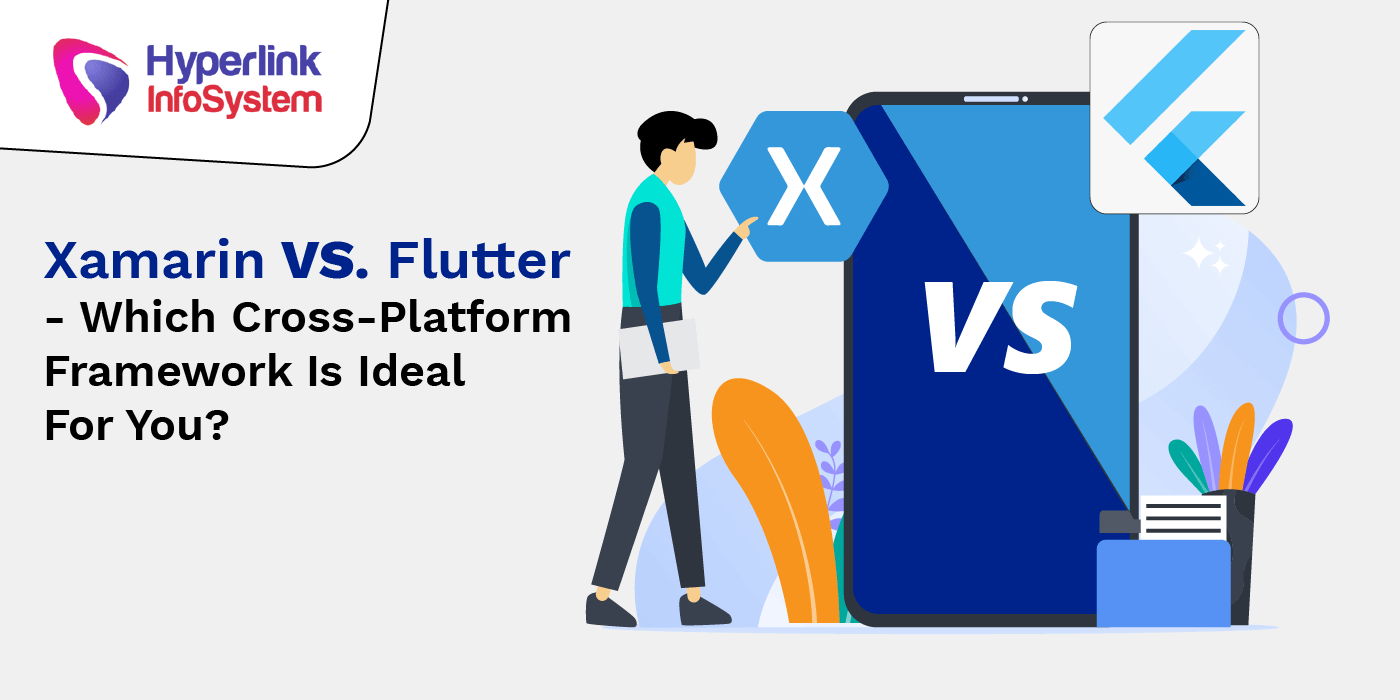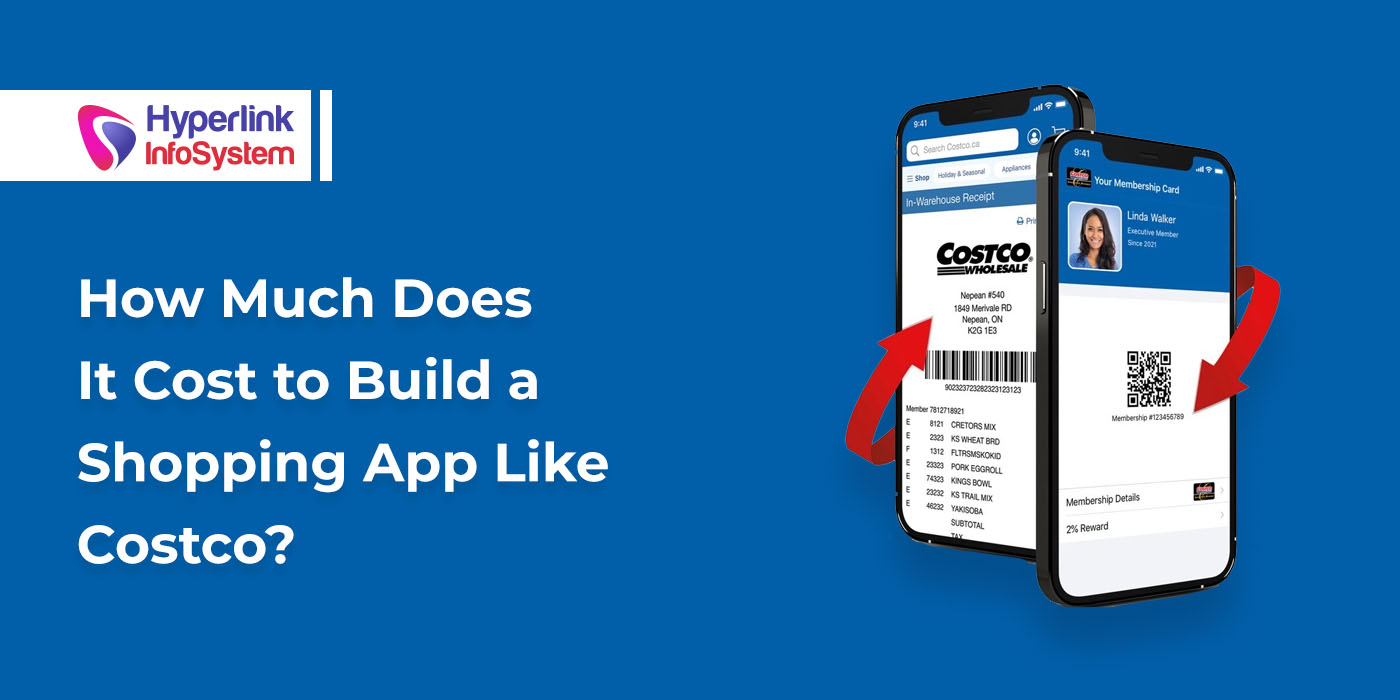Today, everyone owns a smartphone, making up for 3.5 billion smartphone users in the world. Of which 925 million users use the iPhone. The reason why mobile app development companies and mobile apps are rising.
The major problem companies face to get two different frameworks for their business. That means hire iOS developer &
hire Android developer separately, or choose between the two. Because the two applications run in different ways entirely, and you will follow this if you have used iOS and Android mobiles.
The term Cross-platform was introduced to solve this confusion. Cross-platform is a computing term, which means that the program can get implemented on various platforms. And to develop cross-platform applications, developers use Xamarin and Flutter that popularized Xamarin vs. Flutter.
Let’s first know each one a little.
Both Xamarin and Flutter are cross-platform mobile app development frameworks.
Xamarin was the first-ever cross-platform language launched in 2011. It was acquired by Microsoft and synced into the .NET platform in 2016.
Flutter, a project commenced by Google, has been widely promoted since its release in 2017.
Now let’s compare both these platforms on different criteria.
1. Programming Language
Most of us know the key advantages of using a cross-platform mobile app development tech. The critical benefits are that it can use a single programming language for creating apps for Android and iOS.
Xamarin:
Since its launch,
Xamarin has been using the C# language to develop cross-platform mobile apps. C# is a popular language widely used in Microsoft for years.
C# is used to develop .NET frameworks since 2002, and it got renowned with its cool functionalities such as metaprogramming, functional programming, and portability.
Xamarin enables a seamless transition to C# developers from web development to cross-platform mobile development.
Flutter:
On the other hand,
Flutter uses the Dart language for its code. It was launched in 2011 by Google and is mostly used by newcomers who have recently entered the industry. Dart syntax is simple to comprehend for a Java developer or JavaScript.
Dart has an outstanding and straightforward documentation freely available on the official Dart site.
Winner: Xamarin
No doubt, Dart comes with a unique set of features; it is hardly used by developers and is lesser-known. Whereas C# is a universal language and has been around for a longer time.
2. Technical Architecture
Xamarin:
This framework uses the Mono execution environment for mobile app development services. When working on iOS, Mono operates with the Objective-C runtime & on the Unix Kernel. While for Android, it runs alongside Android Runtime on Linux.
The documentation rendered by Microsoft is a description of Android and iOS architecture used with Xamarin.
Flutter:
Flutter uses the Dart system, which comes with most of the default components. Dart has several frameworks like Cupertino and Material Design, which render essential technologies required to create mobile apps.
Winner: Flutter
This is because of all the default features that come with Flutter, whereas Xamarin does not have that great support for the Swift and Kotlin runtime.
3. Installation Process
From the users’ viewpoint, the installation method must be simple. This can help developers learn easily.
Xamarin:
Xamarin uses the Visual Studio IDE. However, there are hardly any resources available to install Xamarin without using Visual Studio.
Flutter:
Flutter can be installed easily by downloading the binary for a particular platform. The Flutter installation methods can be enhanced by supporting package managers.
Winner: Flutter
Flutter installation can be done via the command line, whereas Xamarine is totally dependent on the Visual Studio IDE.
4. Community Support
As soon as developers learn a language, they create a community to share knowledge. The stronger the community, the better the support.
Xamarin:
This one is older than Flutter, and that is why it has an extensive community reach across the globe. There is a community forum to discuss issues and prospects. Moreover, Xamarine is a socially active system.
The Xamarin community has more user interactions since it is an ancient cross-platform mobile app development framework.
Flutter:
However, flutter to a recent invention compared to Xamarin still gained a lot of attention with the support of Google promotions in 2017.
This framework is thriving at a constant pace nowadays, conferences and meetups are taking place online.
Winner: Xamarin
Apparently, the Xamarin framework has a larger community than Flutter framework. The acquisition by Microsoft has led to a much faster growth.
5. Testing Support
Xamarin:
Xamarin helps with every kind of testing within Visual Studio. E.g., UI tests, and Unit tests. This framework even has its cloud test environment to run tests. Most of all, Xamarin has committed support for UI testing. The next significant point is that Xamarin apps can be tested with third-party systems like Appium independently.
Flutter:
Flutter delivers its users a rich set of testing functionalities to test apps at the unit, widget, and even integration level. Flutter has a notable widget testing feature where the user can run widget tests and run them at a similar unit test speed.
Winner: It’s a draw
6. App Size
The size of the app and binary is crucial. Large-sized apps are not liked and are heavy for the frameworks.
Xamarin:
Xamarin renders us with support for several platforms, but the size of the binary is somewhat small. When Xamarin apps are wrapped up for launch, the app size becomes a bit bigger. There is still no code and performance improvement before it is launched on app stores.
Flutter:
Flutter app binaries are typically vast and augment the size of the apps. The Flutter core engine takes up 2.7 MB, besides there is the framework and app code, which increases the size of app binaries.
Winner: It’s a draw
The Endnote
Both the frameworks, Flutter and Xamarine, are the best options and are equally helpful to work with. Both the structures have their pros and cons, so concluding the best one won’t be fair.
This article portrays every detail in the best ways to know which framework is the best for your type of app.


























